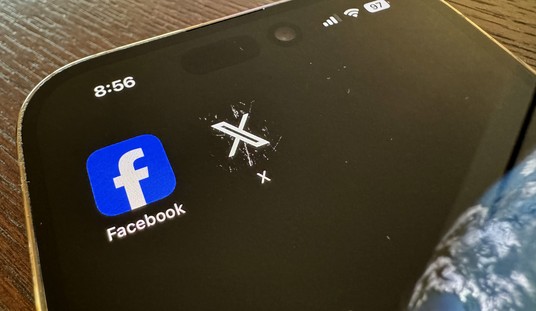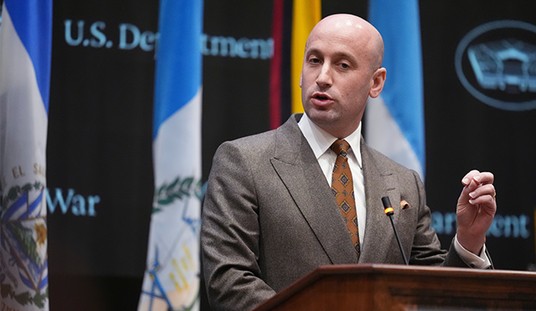Technology is developing so quickly that it's hard to keep up with it, and I don't just mean in terms of knowing it exists. Many of us don't know how to feel about it.
We're still trying to wrap our minds around what we call artificial intelligence, which isn't even artificial intelligence when you break it down. It's more like virtual intelligence. Large language models are effectively a word processor performing magic tricks and running calculations based on input, but even the most human-sounding AI models still show major cracks from time to time, revealing the truth behind the façade.
But one of the more interesting conversations, in my opinion, is the increasing chatter about transhumanism.
For those who don't know what that is, transhumanism is the enhancement of the human body through technology. For instance, if someone told you they could replace your eyes with a mechanical version that looks just like your eyes, but not only gives you clearer vision, but can activate an infrared mode for nighttime and even have a pretty great zoom function for seeing things far away, would you take them? If you say yes, then congratulations, you're a transhumanist.
At first, transhumanism sounds pretty awesome. Using technology to enhance yourself to achieve a level of physical and mental heights not achievable through standard human practice sounds great. You could be a superhero. However, as you stop to sit and think about it, various problems arise.
And no one is waving the red flag on transhumanism harder than Christians right now.
On Friday, Auguste Meyrat at The Federalist reviewed a book by Grayson Quay titled "The Transhumanist Temptation," in which Quay argues that the transhumanist path would lead to dehumanization. He cites birth control and transgenderism as the first attempts at transhumanism, both of which are ultimately destructive, and then also gives Elon Musk's "Neuralink" as a clearer version of transhumanism:
Sometime soon, people will be able to ditch the phone and access the internet instantaneously: “the next step … is the full integration of networked virtual reality into human biology itself.” Although Elon Musk has marketed his neural implant Neuralink as a means of helping people with disabilities, it is almost certain that this will soon become a way for able-bodied users to “replace the dreary living room across [their] entire field of vision while [their] mind guides [their] avatar more deftly than [their] fingers ever could.”
The natural consequence of such a possibility calls into question the idea of having a body at all. After all, René Descartes (in some ways, the grandfather of transhumanism) asserted that man is a “thing that thinks,” never mentioning anything about a body. And if man can become a disembodied intelligence, what does that make of artificial intelligence? Quay believes this puts human beings and their newest piece of software on the same existential plane, making full virtual relationships between them inevitable: “For transhumanists, the idea of falling in love with a digital construct represents a triumph of their view of personhood.”
I don't disagree with any of this. I think Quay is right on the money about how these ends can easily be stumbled into. We're not software ourselves as he predicts (not yet), but we already have people falling in love with digital companions. See my video below for more details (and be sure to leave a like).
But as I said earlier, I'm not sure if I'm entirely waved off of transhumanism because I have something of a more nuanced thought about it. While I agree about its extremes, I think it has its uses, and I've written about them previously and from the perspective of a Christian. My thoughts have evolved a bit more since I last wrote about it, but I still fall somewhere in the cautious middle.
Read: God and the Machine
Human intelligence is a wonder to behold. You might not think it is because of how foolish and ridiculous we can be, but when you stop and think about humanity's journey through time, you'll see a race that went from living in hollowed-out rocks to learning how to make rocks think at an astoundingly fast pace.
From a Christian's perspective, this is because we were gifted our intelligence from a being that is so unfathomably intelligent that his calculations are 100 percent accurate on a cosmic scale. As we're made in His image, we're a chip off the ol' block, at least to the best of our ability. This means that we have a thirst for understanding and knowing, and when I say "thirst," I mean our brains abhor information gaps. In the absence of answers, we will instinctively seek out knowledge to understand, or if we can't find answers, we will instinctively fill in the gap with guesses.
It's that God-given intelligence that led us to improve our lives on this plane of existence. We've aimed for better living through chemistry and technology. In a bit of pain? Our God-given gift helped us to create Motrin and Advil. Did you lose a limb? We can replace it artificially. Do you have a tumor in your brain? We have the know-how to cut open your skull and surgically remove it, or if we can't do that, we can actually destroy it with lasers without ever having to open up your skull at all. I just recently learned we could do that through a friend who's having to get that procedure done.
In a way, a lot of medicine is transhumanism, with some examples being more obvious than others. It's here that my nuanced opinion comes in, as informed by my Christian belief.
It's how we use transhumanism, not that we use it. Let's look at some examples.
God put us on this Earth as its stewards, and gave us a level of intelligence that gave us the power to "subdue" it, as ordered by God in Genesis 1:28. It's my understanding that he delights in our will to discover, however, there are times when He's had to slap our hand when we let our intelligence overpower our sense.
The Tower of Babel in Genesis 11:1-9 is a great example. Humanity thought to create a tower that reached into the Heavens in order to "make a name for ourselves," effectively being like God in their ability to ascend to the Heavens without Him. I could go on about the Tower of Babel story, but the point is that God didn't like the hubris of humans thinking they could somehow be equal with Him, and confused their tongues so they no longer understood each other. It was Eden all over again, but instead of a fruit, it was brick and mortar.
You see this "like God" pattern throughout the Bible, and each time God corrects us, oftentimes painfully.
Exodus 5:2 and Ezekiel 29:3 tell the story of how God showed Pharaoh that he was not as divine as he thought he was. Daniel 3-4 has God humbling a very proud and worship-thirsty King Nebuchadnezzar by making him live like a beast until he acknowledged God's sovereignty. Paul highlighted the human arrogance to think he can be like God in Thessalonians 2:3-4, denouncing one who “opposes and exalts himself against every so-called god or object of worship, so that he takes his seat in the temple of God, proclaiming himself to be God.”
To be clear, God delights in our intelligence as evidenced through various passages throughout the Bible (Proverbs 25:2 and Daniel 1:17-20 for starters), but it's when we use that intelligence to try to be like God that we start to see God frown.
So how does this relate to transhumanism?
God seems to love it when we use our intelligence for good stewardship, healing, and service. Medicine and tech that helps the disabled and sick, whether it's a pair of reading glasses or even CRISPR gene editing to rid DNA of a disease, seem to be well in line with what God had in mind.
It's when we use our intelligence to try to make ourselves gods in our own right that we run into trouble, and it's here I see the dehumanization occurring. Let's go back to CRISPR for a moment. People often bring up "designer babies" as a potential result of gene editing, and I agree. "I want my baby to have blond hair and blue eyes, grow up to be 6'5, and be a born athlete" is "playing God." It turns your baby into an accessory and makes his value based on his physical outcomes, not the fact that he's lovingly and fearfully made.
Chasing immortality through technology, with hearts that never stop beating, lungs that never grow tired, muscles that never weaken, skin that never wrinkles, and brains that achieve higher computational power than we ever dreamed, is just more of the same "like God" mistake we have a habit of making.
I honestly can go on, but I think you get the point.
Transhumanism is, in the end, a tool we can use to achieve some wonderful ends, but we should be very wary of our own hubris, because in our quest to improve humanity, we could destroy it altogether.















